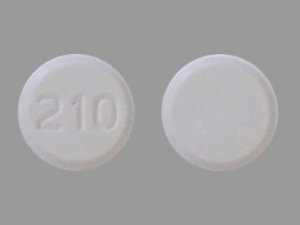Delivery Method: VIA UNITED PARCEL SERVICE AND VIA E-MAIL Reference #: 25-HFD-45-06-01 Product: Drugs Recipient:
Recipient Name
Peter Michael, M.D.
Peter Michael, M.D./G+C Research Group
1401 East 4th Avenue, Suite 201
Hialeah, FL 33010-3504
United States
Issuing Office: Center for Drug Evaluation and Research (CDER)
United States
WARNING LETTER
FDA Ref. No.: 25-HFD-45-06-01
Dear Dr. Michael:
This Warning Letter informs you of objectionable conditions observed during the U.S. Food and Drug Administration (FDA) inspection conducted at your clinical site between June 3 and June 11, 2024. Investigator Angelica M. Chica, representing FDA, reviewed your conduct of the following clinical investigations:
- Protocol (b)(4), “(b)(4),” of the investigational drug (b)(4), performed for (b)(4).
- Protocol (b)(4), “(b)(4),” of the investigational drug (b)(4), performed for (b)(4).
This inspection was conducted as a part of FDA’s Bioresearch Monitoring Program, which includes inspections designed to evaluate the conduct of research and to help ensure that the rights, safety, and welfare of human subjects have been protected.
At the conclusion of the inspection, Investigator Chica presented and discussed with you the Form FDA 483, Inspectional Observations. We acknowledge receipt of your June 26, 2024, written response to the Form FDA 483.
From our review of the FDA Establishment Inspection Report, the documents submitted with that report, and your written response dated June 26, 2024, it appears that you did not adhere to the applicable statutory requirements in the Federal Food, Drug, and Cosmetic Act (FD&C Act) and applicable regulations contained in Title 21 of the Code of Federal Regulations, part 312 (21 CFR 312) governing the conduct of clinical investigations and the protection of human subjects. We wish to emphasize the following:
You failed to ensure that the investigation was conducted according to the investigational plan [21 CFR 312.60].
As a clinical investigator, you are required to ensure that your clinical investigations are conducted in accordance with the investigational plan. The investigational plan for Protocol (b)(4) required the investigational drug, (b)(4), to be administered to pediatric subjects diagnosed with autism spectrum disorder, according to their age and in accordance with the protocol’s 8-week treatment regimen. According to the protocol’s (b)(4) dosing regimen, subjects between the ages of 5 and 9 years old were to receive a starting dose of 0.5 mg/day of (b)(4) on Day 1 (Visit 2), with a dose increase to 0.75 mg/day on Day 5. The protocol allowed for an optional dose increase to a maximum dose of 1.5 mg/day on Day 8 (Visit 3) for the 5-to-9-years-old age group.
You failed to adhere to these requirements. Examples of this failure include, but are not limited to, the following:
a. Subject (b)(6), a 9-year-old female, was administered 3 mg/day of (b)(4) oral solution from August 16, 2023, through August 31, 2023.
b. Subject (b)(6), a 9-year-old male, was administered 3 mg/day of (b)(4) oral solution from August 16, 2023, through September 6, 2023.
According to the protocol, the maximum dose allowed for these subjects was 1.5 mg/day. As a result, Subjects (b)(6) and (b)(6) received daily doses of (b)(4) that exceeded the daily dose allowed by the protocol. Specifically, Subjects (b)(6) and (b)(6) received twice the maximum daily dose of study drug for at least 16 and 22 days, respectively, which exposed them to an increased risk of adverse events.
In your June 26, 2024, written response to the Form FDA 483, you stated that the overdosing of subjects was because of a misinterpretation of the study protocol and the unspecified dosing amounts provided within the protocol respective to each milligram dosage. You stated that when you became aware of these events in September 2023, the subjects’ doses were adjusted appropriately, and the subjects were screened for safety, with no concerns raised or adverse events or reactions reported.
In addition, you stated that a Corrective and Preventive Action plan (CAPA) was immediately implemented to prevent recurrence, and no further incidents have occurred since then. As part of your CAPA, you stated that: (1) site staff were retrained on the dosing specifications; (2) site staff will contact the sponsor for guidance on protocol details that are vague or unspecified; and (3) additional pharmacy staff will be present when dosing to double-check the dose amount given to the subject to ensure that the appropriate dose is administered.
While we acknowledge the corrective and preventive actions that your site has taken, your response is inadequate because you did not include sufficient details regarding the training or procedures implemented at your site to prevent similar violations in the future. In addition, your written response does not provide sufficient details about how you, as the clinical investigator, will ensure adequate oversight of study procedures (for example, adherence to protocol-specified dosing requirements). Given the significance of the protocol violation involving pediatric subjects, we request follow-up documentation regarding the training and procedures implemented at your site to ensure compliance with study protocol dosing procedures. Without this information, we are unable to determine if your corrective action plan is adequate to prevent similar violations in the future.
We emphasize that as the clinical investigator, it is your responsibility to ensure that studies are conducted in accordance with the investigational plan, both to protect the rights, safety, and welfare of subjects and to ensure the integrity of study data. Your failure to conduct the clinical study in accordance with the protocol resulted in an overdose of investigational drug to pediatric subjects. This conduct raises significant concerns about your protection of the study subjects enrolled at your site and raises concerns about the validity and integrity of the data collected at your site.
This letter is not intended to be an all-inclusive list of deficiencies with your clinical study of an investigational drug. It is your responsibility to ensure adherence to each requirement of the law and relevant FDA regulations. You should address any deficiencies and establish procedures to ensure that any ongoing or future studies comply with FDA regulations.
This letter notifies you of our findings and provides you with an opportunity to address the deficiencies noted above. Within 15 business days of your receipt of this letter, you should notify this office in writing of the actions you have taken to prevent similar violations in the future. Failure to address this matter adequately may lead to regulatory action. If you believe that you have complied with the FD&C Act and relevant regulations, please include your reasoning and any supporting information for our consideration.
Should you have any questions or concerns regarding this letter or the inspection, please email FDA at CDER-OSI-Communications@fda.hhs.gov. Your written response and any pertinent documentation should be addressed to:
Brittany L. Garr-Colόn, MPH
Branch Chief
Compliance Enforcement Branch
Division of Enforcement and Postmarketing Safety
Office of Scientific Investigations
Office of Compliance
Center for Drug Evaluation and Research
U.S. Food and Drug Administration
Building 51, Room 5352
10903 New Hampshire Avenue
Silver Spring, MD 20993
Sincerely yours,
{See appended electronic signature page}
David C. Burrow, Pharm.D., J.D.
Director
Office of Scientific Investigations
Office of Compliance
Center for Drug Evaluation and Research
U.S. Food and Drug Administration
——————————————————————————————–
This is a representation of an electronic record that was signed electronically. Following this are manifestations of any and all electronic signatures for this electronic record.
——————————————————————————————–
/s/
————————————————————
DAVID C BURROW
06/18/2025 01:52:13 PM







